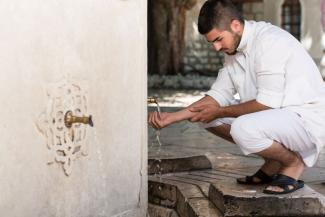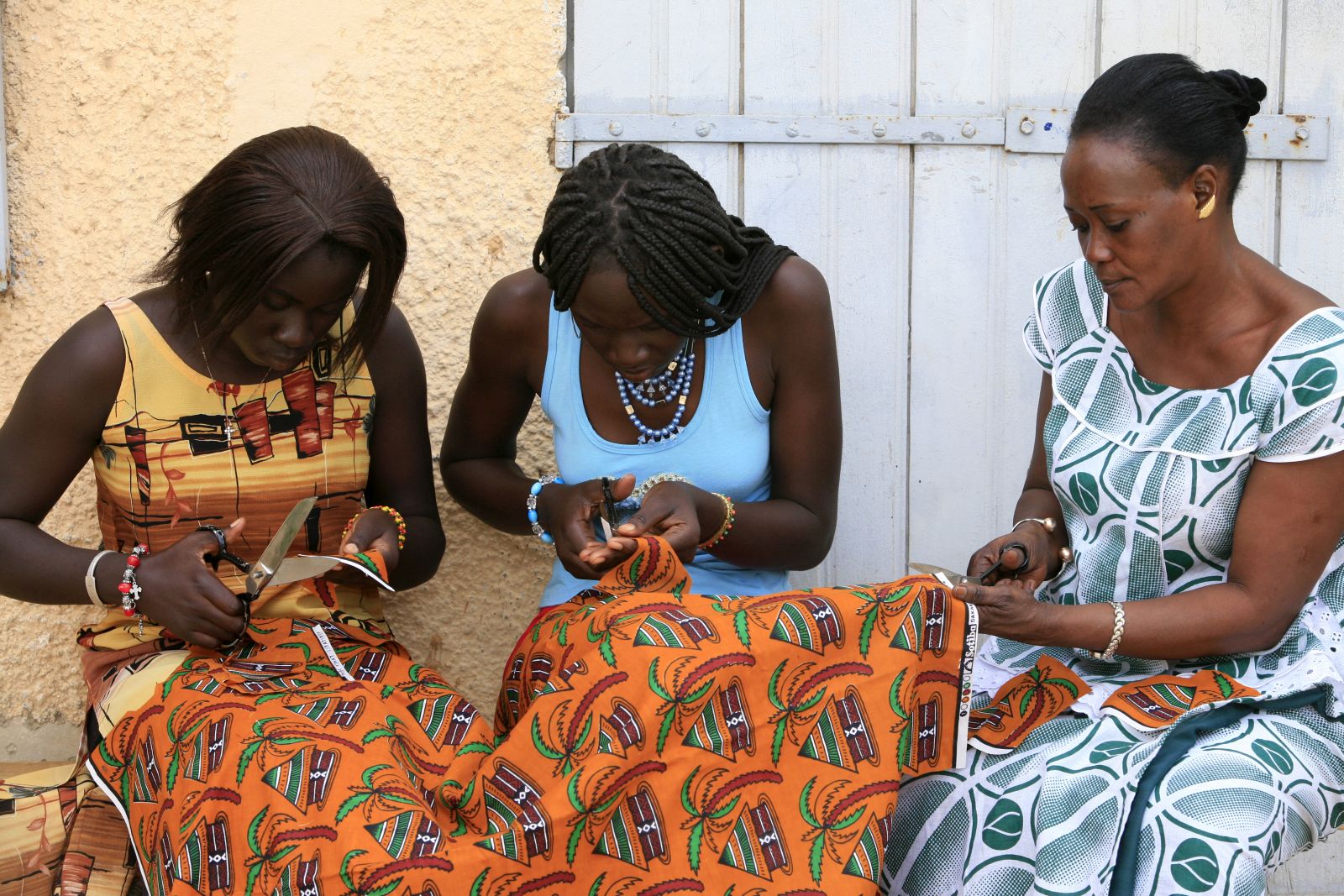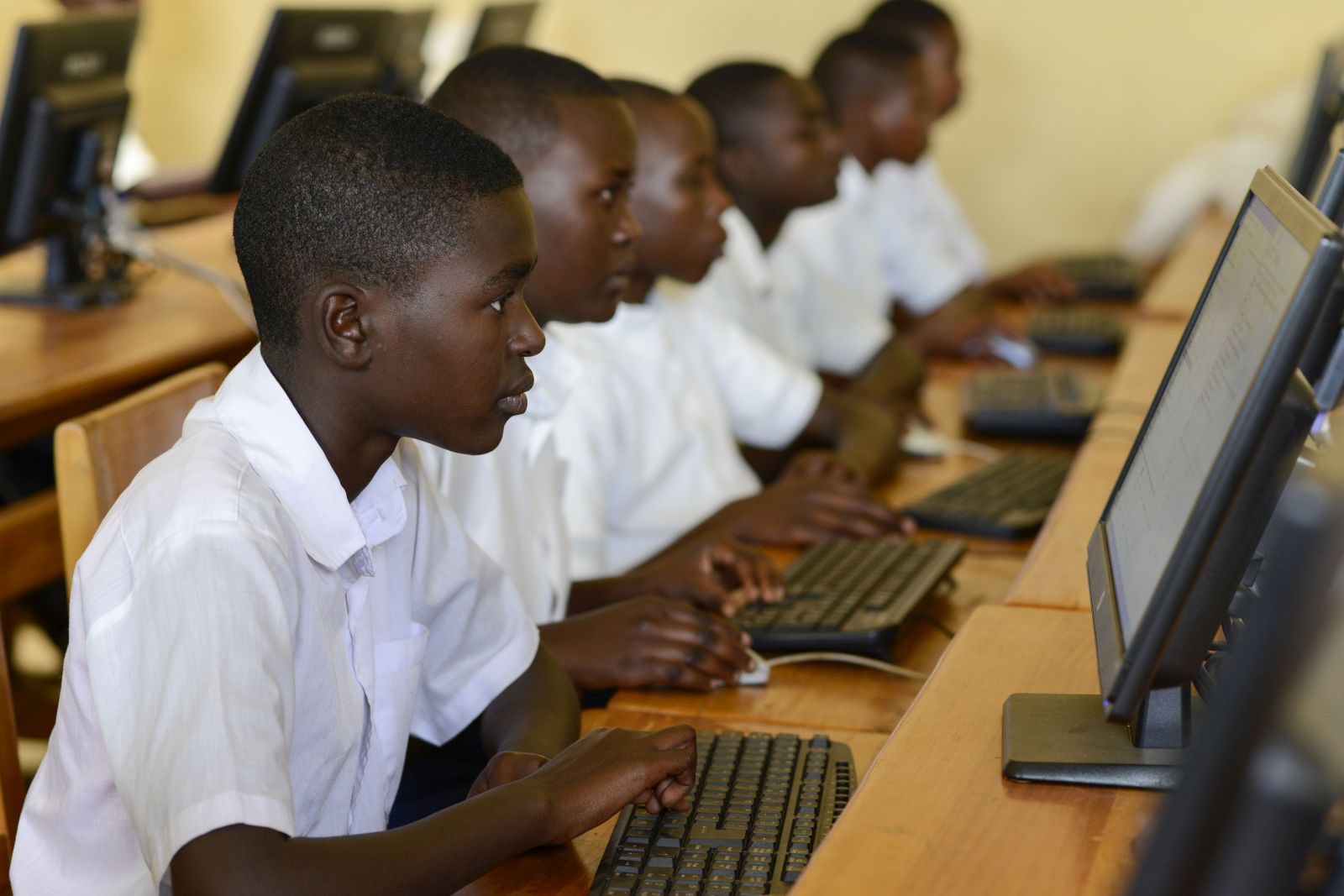Development policy and Islam
Shared objectives

Worldwide, eight out of ten people feel that they belong to a particular religion. Religion plays a major role in their daily lives and shapes their actions. For this reason, in recent years the first tangible efforts have been made to incorporate the influential potential of religion into international development cooperation.
In many partner countries of the German development cooperation, Islam is the state religion. It is therefore a key factor in politics, economics, law and culture. Rising birth rates in Islamic countries lend credence to prognoses that there will be more Muslims than Christians in the world by the year 2070. Islam provides its many believers with a central point of orientation and a framework for action. It serves as Muslims’ moral compass. Islamic values like respect for creation, working for the common good and social justice – interpreted as an obligation to ensure the fair distribution of wealth - offer important starting points for achieving the sustainable development that German policy makers are pursuing (see Martina Sabra’s contribution on Islamic welfare in D+C/E+Z 2015/09, p. 25 ff.).
Appreciation for local traditions and values are a central factor for international cooperation. This attitude encourages accountability between partners and is essential to achieving development goals.
Better cooperation
Germany’s Federal Ministry for Economic Cooperation and Development (BMZ) has asked the German Agency for International Cooperation (GIZ) to identify the potential contribution that religious communities can make to sustainable development as part of its sector programme Values, Religion and Development. GIZ has also been tasked with gathering examples of successful cooperation and highlighting strategies for how religious communities and organisations can work more and better with state organisations.
Examples of successful partnerships between state development actors and religious organisations (ROs) are vital to strengthening a culture of cooperation based on specific values. Empirical examples also increase knowledge about religions and the ability to understand them, which in turn improves religious literacy. This is the first step towards discovering commonalities between different religions.
Based on a preliminary analysis, cooperation with ROs is primarily centred on education, peace and security, health, emergency aid, energy and environment. Religious actors typically sustain cooperation with local people over the long term and establish lasting relationships based on trust through local partner communities. In authoritarian states, ROs are usually the only effective manifestations of civil society. In some countries in sub-Saharan Africa, for instance, they provide over 60 % of medical care.
Nevertheless, the relationship between religion and development is quite ambivalent: Certain actors have a tendency to exploit religion in order to legitimise their domination and exploitation. Careful attention must be paid to whether religious actors impact development positively or negatively, and why. Religious actors often drive progress in their countries long before state institutions get involved. This fact is still not widely acknowledged. The public is much more aware of the abuse of religion than of its potential.
Examples of successful cooperation
Below are three diverse examples of successful cooperation between GIZ and Islamic authorities in Jordan, Algeria and Afghanistan. Algeria’s economic development and the strong growth of its urban centres are leading to drastic environmental pollution, the overuse of water resources, high waste accumulation and rising levels of exhaust fumes. Yet respect for creation is firmly embedded in Islam, as it is in all of the other major world religions.
This respect was the starting point for the BMZ’s Integrated Environmental Management project, which was launched in Algeria in 2007. The project was intended to increase Algerians’ awareness of environmental issues. Thirty local imams and Koranic school teachers received a year of instruction in environmental protection. Through presentations on water, hygiene, refuse, green spaces, biodiversity and environmental education, the workshops showed participants how they could motivate believers to act in an environmentally friendly manner.
GIZ also created a textbook explaining the importance of biodiversity for human life. The material was made appropriate for Koranic school students and was underpinned by religious arguments. The workshop participants then received training on how to use the textbook and on suitable teaching methods. The textbook is now being used in Pakistan and in many other Koranic schools throughout the region.
Promoting water conservation
Jordan is one of the most arid countries in the world. Population growth, increasing economic development and the growing number of refugees from Syria are putting an additional strain on water resources. Water scarcity is also exacerbating social tensions between Syrians and Jordanians. As in Algeria, GIZ is trying to raise awareness about water scarcity with the help of religious authorities. Imams and teachers of religion have been recruited as water ambassadors and teaching material and curricula have been developed on the topic of resource conservation. Islam provided the starting point in this case as well. Over 90 % of Jordanians and Syrian refugees living in Jordan are Muslim. The topic of water plays an important role in the sources of Islamic revelation. The traditions about the life of the prophet Muhammad also contain numerous mentions of using water sparingly.
Women’s rights
Asserting women’s legal and political equality in Afghanistan presents a great challenge. For most women, the right of access to education, health care and social protection only exists in theory. This is because several legal systems exist side-by-side: traditional law, Islamic law and constitutional law. The Afghan constitution privileges the Hanafi school of Sunni Islamic law and therefore offers opportunities for realising women’s rights.
One goal of the BMZ’s programme to promote the rule of law in Afghanistan is hence to improve access to formal legal institutions for women and girls. The Ulema Shura is a state-appointed council of religious scholars that is active throughout the country. GIZ has reached a consensus with the members of the Ulema Shura regarding women’s constitutional rights. Ulema Shura members are now actively promoting women’s rights through their networks and in their Friday sermons, that directly address only men. The Ulema Shura is also carrying out campaigns to raise awareness about women’s rights among village councils, councils of elders and religious authorities.
It has proven very important to bring men on board as partners in this process. Their help and acceptance are essential if women’s rights are to be realised. In order to win over men, emphasis is placed on the opportunities and benefits their families will enjoy if women are able to exercise their rights. Civil mediators, public prosecutors and lawyers are receiving training in family law and inheritance law and in the process are also learning how to legally represent women.
Nabiela Farouq is an expert in Middle Eastern Studies and advisor for GIZ’s sector programme Values, Religion and Development.
nabiela.farouq@giz.de
Ulrich Nitschke is the head of that sector programme.
ulrich.nitschke@giz.de











